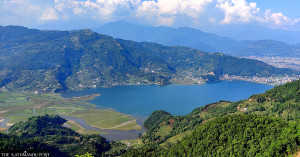Money
Zinc sheet factories running below full capacity due to load-shedding
Factories manufacturing galvanised sheets along the Bara-Parsa Industrial Corridor have not been able to operate in full capacity, thanks to poor power supply.
Shankar Acharya
The government has pledged to regulate power supply for these factories, but has failed to deliver on its commitment so far. There is a massive growth in demand for zinc sheets after the April 25 earthquake.
Of the four zinc sheet makers in the country, three—Hulas Steel, Rajesh Metal and Bhagawati Steel—are based in the Bara-Parsa Industrial Corridor. Of them, Bhagawati Steel has remained closed for the last one and half months, citing technical problems.
Hari Gautam, an official at Birgunj Chamber, said the corridor has been facing 16 hours of load-shedding per day. “At such a crucial time of national crisis, the government should instead facilitate these production plants by offering various facilities,” said Gautam.
He said the government’s faces a challenge of maintaining economic growth along with rehabilitation efforts. “For the purpose, the government should initiate freeing such factories from load-shedding,” he said.
The factories need 2.5-3MW electricity and the equipment could not be operated under generators, they said. It is estimated that it would take 1.5-2 months to fulfil current demand for zinc sheets if all these three factories operate at full capacity. Of the two operational factories, Rajesh Metal can manufacture 150 tonnes of zinc sheets daily.
Pradeep Kedia, president of Birgunj Chamber, said they were also facing raw materials shortage. These companies manufacture two types of products—HR sheet that prepared by galvanizing cold roll prepared from imported iron sheets, and directly coated iron sheets with zinc.
Kedia said the demand for zinc-coated iron sheet, in particular, has increased. He said they have run out of stock. “And it takes at least 45 days to import the raw materials from India,” he said.
Hulas Steel said it has been operating through single plant due to the damage in its furnace by the earthquake. The company said it produced 219 tonnes and 163 tonnes of zinc sheets on Saturday and Sunday, respectively.
Issuing a press release, these industries have claimed to have the capacity of producing the required zinc sheets for the reconstruction purpose.
Kedia said Hulas could increase its production to 400 tonnes daily from the current 200 tonnes if the damaged furnace is repaired. Hulas, which has the capacity to manufacture 12,000 tonnes monthly, is said to have ample stock of the raw materials.
‘Funds will meet 50pc demand’
The Home Ministry has said the Rs7 billion released so far for quake-affected districts to purchase corrugated zinc sheets will meet the needs of 50 percent of the victims. The ministry had received Rs8 billion from the Prime Minister Disaster Relief Fund. Rameshwor Dangal, joint secretary at the Home Ministry, said the distribution of the funds to the victims has started in half dozen districts, including Kathmandu, Bhaktapur, Lalitpur, Rasuwa and Dhading.
“It will start in Sindhupalchok and Kavre from Sunday,” he said. The government has decided to give Rs15,000 to purchase zinc sheets to each household whose houses have been damaged and are inhabitable. Dangal said the ministry is seeking an additional Rs5-6 billion. (PR)




 30.6°C Kathmandu
30.6°C Kathmandu














